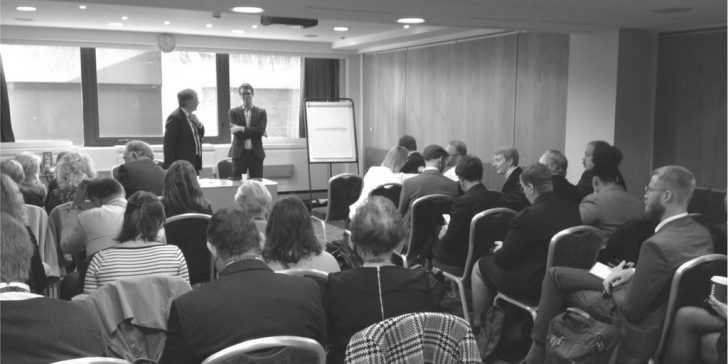
Image credit: @aboutwithneilmp
It was standing room only at a packed Localis fringe event to debate whether the UK needs a ‘National Child Protection Service’. It was clearly a topic of interest – perhaps a reflection of a fringe event programme heavily dominated by Brexit, economic growth and industrial strategy.
So, as one of the few forums at the Conference for a debate on children’s care, the conversation was lively and raised many issues across the spectrum of children’s social services:
- Leadership is needed at a local level: Effective children’s services are often about sharing the right information at the right time which requires trust and leadership at a local level. This would be lost if we moved to national structures. Rather than changing structures, agencies should be asking how they can work better together. For example, Neil Carmichael MP opened the event with the headline stat that 70,000 children are in care. If agencies had worked better together, and shared the relevant information, of those 70,000 children, how many might’ve been ok had they had just a little bit more help when they needed it?
- A national protection service would not solve the workforce challenges of recruiting and retaining social workers (which does need a national solution): If a new national structure is going to be introduced, it should be a professional body and national strategy focused on the recruitment and retention of social workers. Councils are competing with each other – and independent agencies – to recruit social workers at local level when actually we need to focus on the wider, national issue of making social care a desirable profession.
- We’ve lost the balance between professional judgement, common sense and regulation: Councils and social workers are dealing with the consequences of inspection as opposed to improvement and, as a result, the sector is risk averse, highly regulated and measures the wrong things. The inspection framework needs to be re-written that takes into account work around early intervention and prevention, partnership working and helps foster an environment where social workers and other agencies feel that they can exercise good judgement.
- Resources are just one part of the story; we need the evidence too. Outcomes of children coming out of care are poorly tracked, as are the impact of various interventions and therefore, we don’t have a clear idea of what is and isn’t working (see IMPOWER’s recent report ‘Getting a Grip’).
However…
- National outcomes and a framework could be negotiated, with delivery left to the discretion of local authorities: Mark Rogers (Chief Executive, Birmingham) proposed that a national negotiation of outcomes and frameworks could work, but how this would be delivered must be left up to local areas. A top-down approach wouldn’t work, particularly for Birmingham where it is an outlier, with a unique set of challenges around delivering care. With regards to trusts, evidence suggests that in some cases they neither save money nor improve outcomes, but for Birmingham a trust will give them the focus and the flexibility they need to drastically improve their children’s services.
And finally…
- What is the balance between managing demand and encouraging people to ask for help when they need it? A member of the audience asked how councils could be more encouraging of families to come to the council when they are struggling, without the fear that their kids are going to be separated from the parents. The challenge for organisations such as IMPOWER is to help councils do this as part of an early intervention offer, but in a way that doesn’t generate avoidable demand and unnecessary referrals and assessments.
There are some other interesting and insightful comments at the Localis fringe which I haven’t included but it just shows the need to constantly be debating the nature of how we care for children and how that can influence policy and action on the ground. The overwhelming answer to the question ‘do we need national child protection service’ was ‘no’. But there is scope for more national strategy and collaboration in other areas (social workers and supporting foster carers) that could make a big, tangible difference.
ICC Birmingham via photopin (license)
